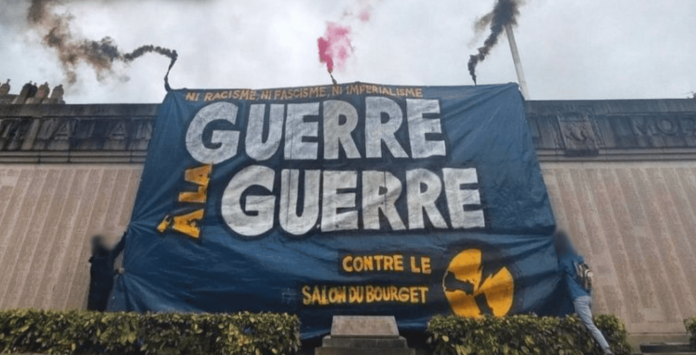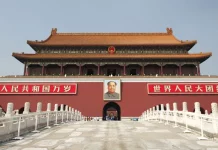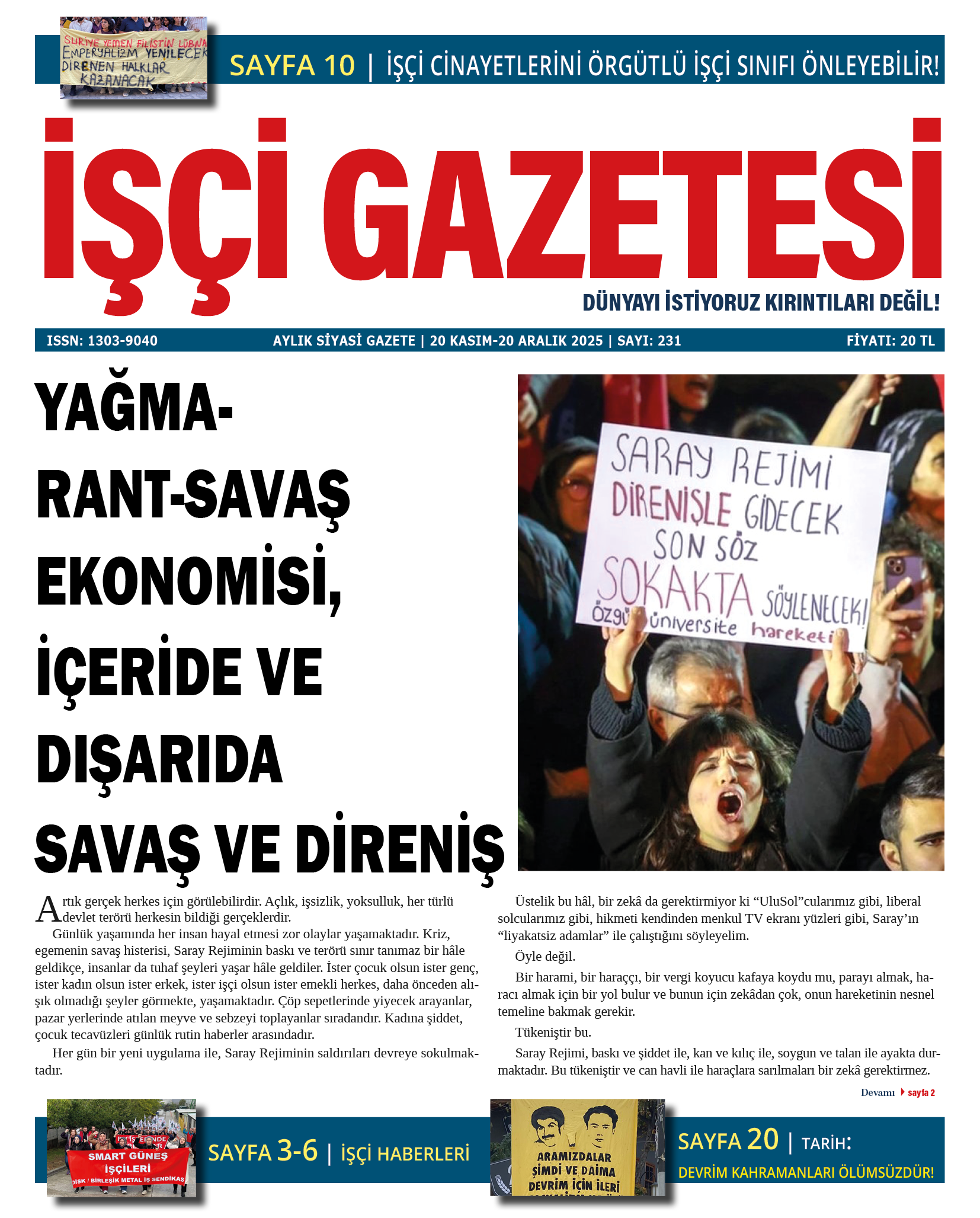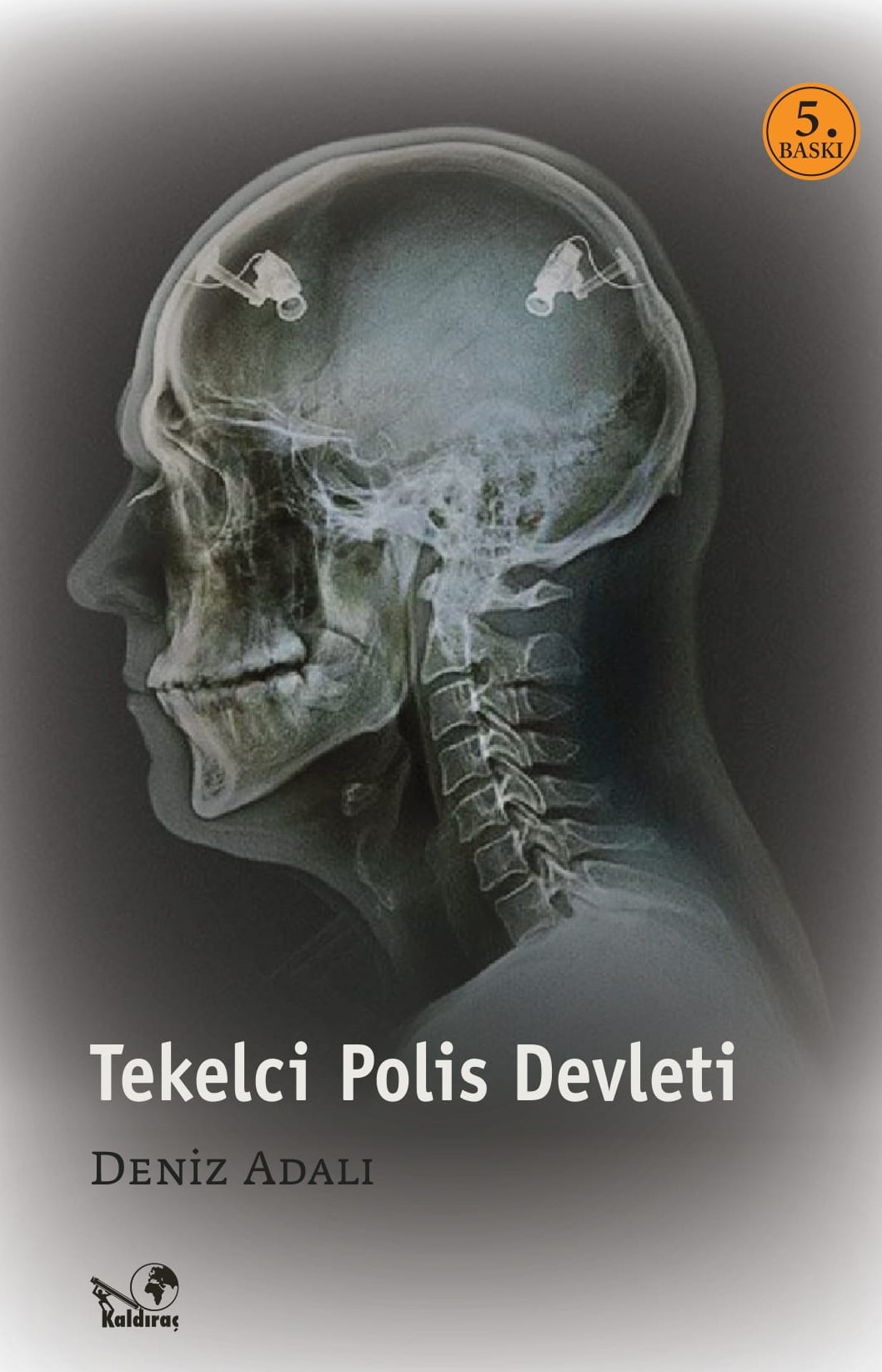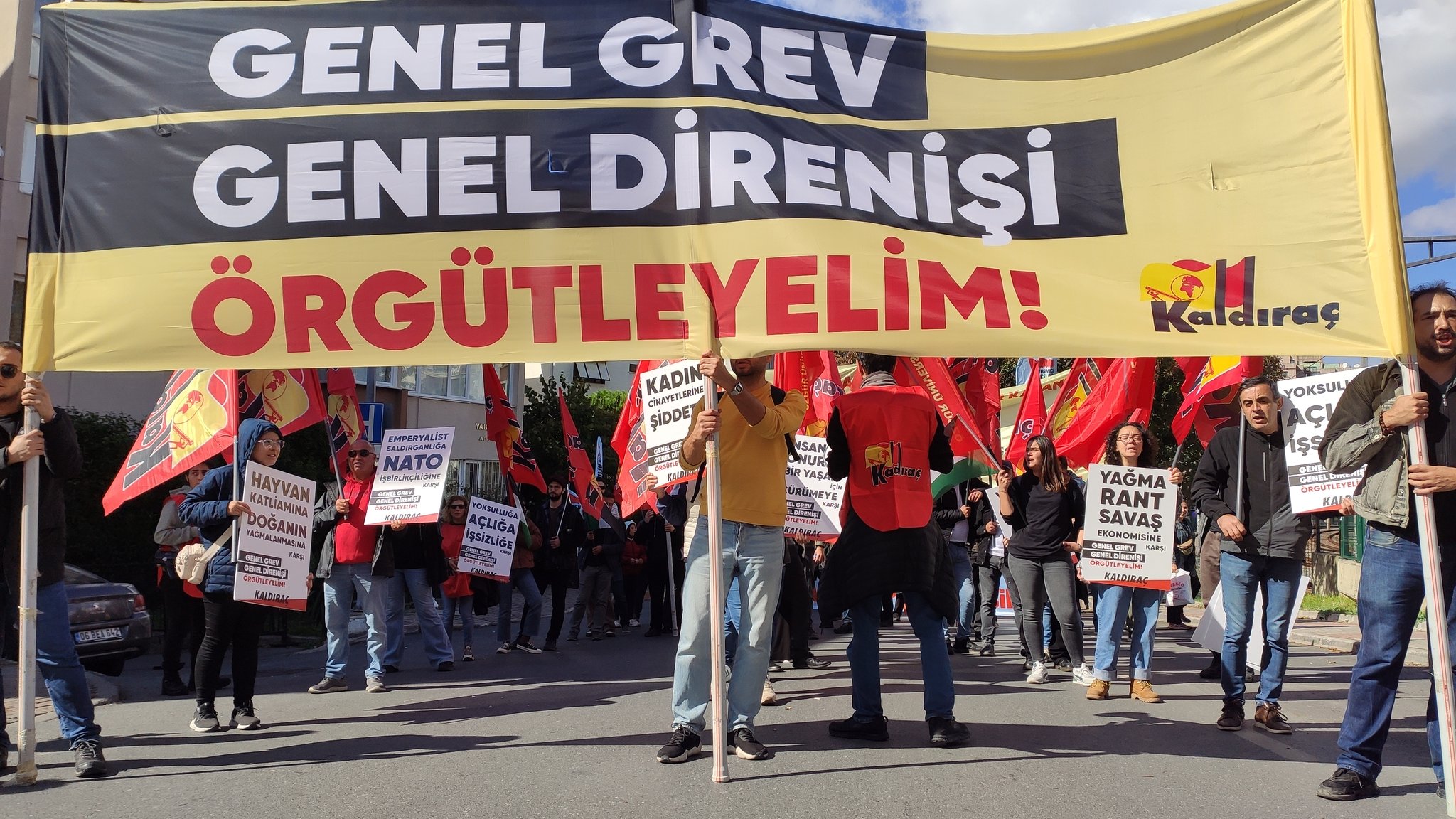As capitalist-imperialism expands wars across the world and European countries are increasing militarization, we interviewed the growing anti-war coalition Guerre à la Guerre in France. We discussed the current situation of the resistance against imperialism in France, France’s role in the imperialist order, and the pro-Palestine struggle. Guerre à la Guerre presents us with the picture of the promising developments in France against the state’s rampant warmongering and the prospects for expanding resistance.
1. Can you introduce briefly Guerre à la Guerre to our readers? When was your coalition founded? What are its aims, active campaigns and some past actions?
Hi. Guerre à la Guerre was created out of a realisation: as wars – often imperialists – were raging, the Left was not able to answer in a strong manner. We, meaning antifascists, “radical” ecologists, members of the Palestine solidarity movement in France decided to form an alliance in order to build this strength that we so severely lacked.
When we launched the coalition, in November 2024, we had in mind the scattered state of the antimilitarist movement in France. Basically, there were very traditional antiwar associations on one side, with a very legalist approach, and more anarchist or autonomous groups on the other side, doing more direct action. Both were very separated from one another. Hence why we try to organise not as a party nor an organisation in the traditional term, but rather as a coalition, trying to build connections between existing forces in France and possibly elsewhere. Inside the coalition, we decided to organise between autonomous and revolutionary forces, i.e. without the institutional left. The point is to put out some political positions, and organise outside of the coalition with people and groups that adhere< to them, even with social democratic parties (La France Insoumise) or trade unions (CGT, SUD).
The genocide in Gaza has made this objective even more necessary, as Palestine is at the centre of our mobilisations and efforts. Without a strong anti-war, anti-militarisation effort, we will not be able to put pressure on our governments in order to end this suffering.
However, Guerre à la Guerre has other aims, as we try to fight back against what we have analysed as an ongoing “militarisation process” in France. This follows two tendencies. The first one stems from the weapons industry in France, which is taking more and more place as France became the second largest weapons seller in the world. Along with a crisis of the manufacturing sector, this means that more and more of the industrial power and investment in France will be going towards weapons production. The second tendency, inseparable from the first, is the huge growth of the defence budget and more generally the involvement of the army in other fields, like education, health, etc. We also chose to define a “continuum of war and control”: war machines, surveillance technologies, repression weapons, jails, camps and borders. From this political and strategical analysis, the coalition started to join exiles collectives, feminist and antifascist groups, decolonial movements… and all these forces took an important part in the construction of the coalition.
We organise on many different levels, both national and local, trying to connect all those different aspects of militarisation. Weapons fairs are a very important target, and we acted against those in Paris. We also demonstrated on July 14th, in order to show an antiracist and antiwar side, fighting back against the celebration of nationalistic and warmongering values.
2. Can you describe your mobilization for the Paris Air Show? What was this show and why did you select it as a target? How effective was the mobilization and what kinds of police repression did you face?
The Paris Air Show is a plane and spatial fair, where every manufacturer in the industry turns in, from 175 countries. It amalgamates the civil and the military parts of the industry, with many visitors (164 000 this year) coming to admire the Air Show. Planes, weapons, drones, rockets are on display, and other planes are flying above the fair, in order to build a fun and family-friendly image of said weapons. Above all, this show takes place right next door of the Bourget Airport from where our exiles comrades are deported. They played an important role in the choice of this target.
It unites everything we fight against, and that is why we made the “Stop Bourget” mobilisation. First and foremost, it is the place where billion-dollar weapons contracts are signed, and all the major “players” are here, both French and international. Death merchants are there, and we wanted to show this. Israeli companies and French companies profiting from the genocide were at the centre of our target, but it was important for us to show that the weapons business profits from any war, anywhere, from Ukraine to Sudan. Secondly, it is an occasion to show that civil and military industries are tied, and to inform people on the military-industrial complex’s place in France. Thirdly, and it might seem more anecdotal, it takes place in the Banlieues, near one of the poorest districts in France, the 93. None of the wealth coming from this celebration of weapons sellers comes back to those in need. This also highlights the colonial nature of the militarisation in France, as people living in the area are often descendants of victims of French colonialism, and still suffering under neo-colonialist policies.
To be blunt, the mobilisation was not so effective. Because of an antiterrorist operation, the main project was abandoned and we were not able to disrupt the fair. The more direct actions that took place were more symbolic. Some groups disrupted the exhibition inside by staging a ‘dying’ protest, others repainted the façade of GIFAS, the arms dealers’ lobby, others covered the metro steps with red paint, forcing visitors to cover their shoes with blood-coloured paint, and a balloon release did take place, even if it did not have the scale of the ‘celestial procession in the colours of Palestine’ initially planned to prevent any aircraft from taking off.
The demonstration brought together between 2500 and 4000 people, and was heavily surrounded by the police, even though we had no intention of confronting anyone. When fighting against those powers, the State’s pushback is very strong, both in terms of direct police repression and surveillance. People were arrested in the days before the demonstration; on the day, the union centre where we were located was raided by the police, people were searched for weapons – and the police popped all the helium balloons that were prepared for the demonstration. The demonstration wasn’t huge, but many local residents joined in. Palestine and Islamophobia were central themes, which wasn’t ridiculous for a music festival in the suburbs.
However, as a first step, it remains a success. We successfully organised with people from very different paths: union members, political parties, anti-war associations, decolonial militants, ecologists, and simply people from the neighbourhood. The union members said that it was one of, if not the biggest demonstration they had seen in the district. With more structure, more time and experience, it will reach more people, especially in the base of those organisations, and grow!
3. How do you assess France’s position in the contemporary imperialist system and rivalry? More specifically, what is France’s current position within the overarching capitalist-imperialist agenda led by the US? While, for the most part, France staunchly follows US-NATO-led agendas and wars, at times it seems to attempt to strike a more independent tone. How should we approach France’s role in general imperialist plans, its relationship with the US, its own imperial ambitions, and the new strains in the relationship between Europe and the US as a whole?
Not all factions within the coalition may share the same analysis. However, here are a few ideas that most agree on. France is part of the imperial core. It is obvious that France is a US ally, and the militarisation process that we talk about also answers some American demands (the 5% of GDP military spendings). For its biggest recent military operations, France has needed US help, for example in Libya in 2011. However, France has a special place in the architecture of this US-led imperialism.
Firstly, France is an imperial power on its own. It is surely secondary in terms of power, but not in terms of territory, as France has the second biggest exclusive economic zone in the world due to the remains of its colonial empire. Kanaky, French Guyane, and many other constitutes assets for an imperialist power. France also still has a big influence in the formally sovereign countries that constituted its empire, through institutions like the CFA Franc, protected investments and more direct political interference.
Secondly, France has both an economy totally intertwined with the US economy, an army dependent on the US army and the US industrial complex, and a history of political non-alignment, from de Gaulle’s exit from the integrated command of NATO in 1966 to Chirac’s famous opposition to the Iraq War.
Thirdly, France and Germany are certainly the two economic and political leaders of the European Union – which certainly can be interpreted as a US-controlled asset, but is still a very important political and economic organisation.
In those three aspects lies the key to understanding France’s at times contradicting stances. Macron will follow the order given by Trump, i.e. to reinforce the military budget, but he will do it by saying that Europe needs a common defence and military independence (disregarding the fact that this means buying a lot of weapons from the US). Europe as a whole will try to develop a “sovereign cloud,” or independent military digital infrastructures, but using US technologies and remaining dependent on US firms.
To us, the apparent tensions between the US and France are however very real, as France has to follow the American rule, even when it goes against its own interest. In various ways, France, which is declining in its neo-colonial dimensions, is attempting to reposition itself within NATO, particularly in areas such as ‘space warfare’.
4. How do you think France is reacting to, or plans to respond to, the developments in Africa, with more governments detaching themselves from the remnants of French colonial rule? How do these developments relate to militarism and police-state repression in France?
As said, much of France’s fortunes comes from its colonial and post-colonial empire. For example, one of France’s richest man, Bolloré, has made his fortune by selling and exploiting harbours in West Africa, using the collaboration mechanisms built in the aftermath of the formal decolonisations. However, many in those countries now reject what is called “Françafrique”, as the “France dégage” campaign in Senegal has shown. The French army has had to evacuate some of its military bases, but it retains others and its special forces remain very present in the Sahel and Central Africa, where they face strong competition from Russian paramilitary forces (Wagner/Afrika Korps). France is doing everything it can to stay in the race, even though it is effectively losing ground.
To understand the link between France’s colonial empire and the repression in France, we have to go back to what we call the colonial continuum: the methods that were used against the population in the colonies, then against national liberation movements, are used today firstly and daily against non-white proletarians in the suburbs, in jails and through the regime of borders, then against political activists. More broadly, the immigrants coming from those ex-colonies suffer from racism, and are “dealt with” in a colonial way: the “BAC”, a violent unit in the French police, is an offspring of a special unit created in order to oppress immigrants of the colonies in the 50s.
France is a medium-sized imperial power, in decline but still deeply structured by external and internal colonialism.
5. How would you describe the resistance in the street in France against imperialism and war? What are the main components of the resistance and how widely is the movement against imperialism and war taken up by the working class and its organizations such as the unions?
Imperialism has been severely under-thematized by the extra-parliamentary Left, but is making a comeback in the discourse at the moment. The situation in Palestine makes it more obvious to more people, and it draws people towards those questions. The unions on the left, even those with more corporatist approaches, have to act – as the actions of the CGT Dockers in Marseille have shown – and many small strikes for Palestine have taken place. In the movement for Palestine, working-class neighbourhoods are present and exiles are leading a movement against border systems. We are at the beginning of rebuilding an anti-militarist, anti-imperialist and internationalist movement, but the main work still lies ahead!
6. How do you assess the current situation of the pro-Palestine struggle in France? What are your observations on the current state of Palestine actions and the participating social groups (migrants, workers, women, students etc.)?
The fight for Palestine is very socially diverse. The main differences with a more classical movement is that it is very young, and less white than usual. Women have always had an important place in the Palestine solidarity movement in France. This current movement is also characterised by the rise of Palestinian voices, with the movement being led by Urgence Palestine – which is part of Guerre à la Guerre – and whose leading voices are Palestinian. During the first months of the Palestine solidarity movement after October 2023, it was very difficult to organise demonstrations as the repression was harsh. This element, combined with the repression of the riots in the popular neighbourhoods of the 2023 summer slowed down the involvement of the popular youth compared to the movement during the 2014 war in Gaza. Palestine is now one of the drivers of politicisation among the youth since it blatantly links a humanitarian crisis to the US-led imperialism world system.
However, the lack of effectiveness of the traditional demonstration did not push many people towards more radical actions, like Palestine Action in the UK.
7. How do you think anti-imperialist movements across the world can form stronger international solidarity? What kind of actions and campaigns would be most effective to develop this solidarity?
Guerre à la Guerre is very young, but we feel that we cannot build an effective movement against war without an internationalist approach. The European scale is particularly relevant since many of the NATO member are located there. With the rapid growth of military spendings in Europe at the expense of the working class, there are some movements or coalitions called “war to war” that are appearing in countries such as Italy and Germany. This is a very good opportunity to build an anti-imperialist movement that crosses borders since the situations in France, Germany and Italy are very similar in terms of the military spending being imposed by the US. We try to maintain contact with many other countries, especially in campaigns for Palestine or against NATO. NATO probably is the most obvious target, but building an international demonstration takes time and effort.
But before trying to do one big thing, communication between anti-war movements around the world, coordination through common analysis seems to be necessary. This will take time. But it will allow for a more international culture. Let’s work together to build this international movement of peoples against war and for revolutionary peace!


